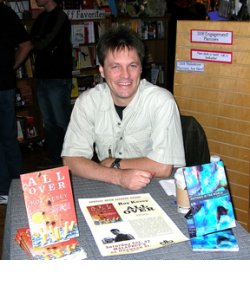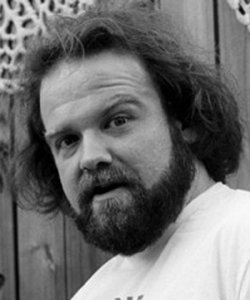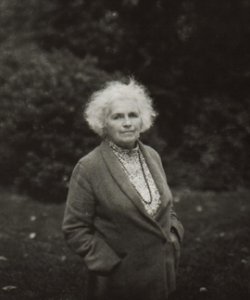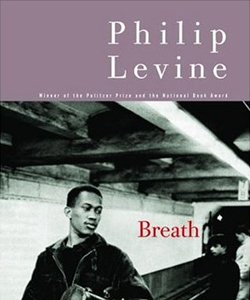The New Creative Nonfiction Writers
Citizen journalists, often blogging in real time, have forced an expansion of creative nonfiction by influencing public opinion on important issues such as the presidential campaign.
Jump to navigation Skip to content
Articles from Poet & Writers Magazine include material from the print edition plus exclusive online-only material.
Citizen journalists, often blogging in real time, have forced an expansion of creative nonfiction by influencing public opinion on important issues such as the presidential campaign.
While it's safe to say the twenty-first century has so far not been a great time for American diplomacy, a handful of new poetry anthologies, from Norton, Dalkey Archive Press, North Atlantic Books, and Graywolf Press, offer proof that American poetic diplomacy might be entering a new golden age.

Having settled into her new role at Nan Talese’s imprint following her ouster from Houghton Mifflin, editor Janet Silver discusses what she looks for in a new writer and what every author should know about agents.
Pattiann Rogers, author of twelve poetry collections, including Wayfare (Penguin, 2008), recently spoke about the process of writing her latest collection, the importance of investigation, and the pleasure of naming the world.

Phillip Lopate, considered by many to be one of the most important essayists of our time, discusses the controversies surrounding creative nonfiction, his own essay-writing process, and the ultimate quality he looks for in nonfiction—an interesting mind at work on the page.
Page One features a sample of titles we think you'll want to explore. With this installment, we offer excerpts from The Film Club by David Gilmour and The Story of a Marriage by Andrew Sean Greer.
Small Press Points highlights the happenings of the small press players. This issue features BOA Editions, Ltd., Four Way Books, Wave Books, Anhinga Press, Copper Canyon Press, Margie/IntuiT House, Graywolf Press, and Cy Gist Press.
Literary MagNet chronicles the start-ups and closures, successes and failures, anniversaries and accolades, changes of editorship and special issues—in short, the news and trends—of literary magazines in America. This issue's MagNet features Ninth Letter, Oxford American, and the Literary Review.
Today, it seems that we have access to an unlimited amount of information all the time, and for those of us who want to be alone with our thoughts, that information is getting harder and harder to avoid. More and more of us suffer from a condition sometimes called "digital information overload," or "infomania."
Ordering poems becomes a familiar act if you consider the lyric poem in its original form—the song. And if you were the kind of incessant list-maker Nick Hornby describes in his novel High Fidelity, the kind who also made mix tapes from your album collection. If you were the kind of geek my college boyfriend, Tim, was and—admittedly—the kind I was too.
Founder and editor Rebecca Wolff speaks about Fence magazine’s tenth anniversary.
Speculation and rumor continue to drive the gossip surrounding Tom Wolfe’s and Richard Ford’s decisions to leave their former publishing houses, but their true reasons remain a mystery.

Nat Sobel, one of the most forward-thinking and outspoken agents in the business, voices his opinions on what authors should do for themselves, the dangers of MFA programs, and what he finds in literary magazines.
The origin and form of Mayhill Fowler’s Huffington Post report on Barack Obama’s use of the word “bitter” suggest her work is neither blogging nor journalism, but creative nonfiction. That its effect was out of proportion with its intention begs the question: What can the creative nonfiction writer expect in the Information Age?

Beijing, despite its cheap food and beer—two dollars worth of Chinese yuan will buy you a nice Chinese meal or a twelve-pack of Tsingtao beer—has yet to become the Paris of the 21st century, but an expat fiction scene is beginning to emerge.
No two writers write alike, but when two hundred gather for an event—as they did at this year’s Sunday Times Oxford Literary Festival, held at Christ Church College in Oxford from March 31 through April 6—some common themes tend to emerge.
The first time my then-fiancée mentioned Shanghai, China, and our future in the same sentence, we were canoodling in our favorite pizza place in Massachusetts. I, wildly in love, responded to the possibility with nothing more than a slight pause. “Move to China?” I asked. “Sure, why not!”

Ander Monson’s fourth book, the poetry collection Our Aperture, was published in January by New Michigan Press. It’s a short thirty pages, but it further extends the reach of the author’s genre-bending work. Poets & Writers Magazine recently asked Monson about his predilection for playing with genre.
Five years ago, as poets and readers attended the annual StAnza poetry festival, the war began in Iraq. This year’s festival, held from March 12 to March 16, acknowledged that anniversary explicitly with its two themes, “Poetry & Conflict” and “Sea of Tongues.”

Celebrated short story writer and poet Grace Paley died of cancer last August at the age of eighty-four. A lifelong activist, pacifist, and an early figure in the women’s rights movement in the 1960s, Paley was one of those writers who managed to combine a public life of frequent readings and appearances in support of a range of causes with work lauded for its artistic integrity. We interviewed Paley a little more than a year before her death at her home in Thetford.

Throughout his long career, Philip Levine has established a reputation for poems honoring the working class, beginning with the people he encountered as a young man laboring in the factories of Detroit. Though he has taught in writing programs nationwide since the 1950s, his poetry has maintained a stronger identification with the autoworker than the academic. Poets & Writers Magazine asked Levine, who turned eighty in January, how his writing is going these days.